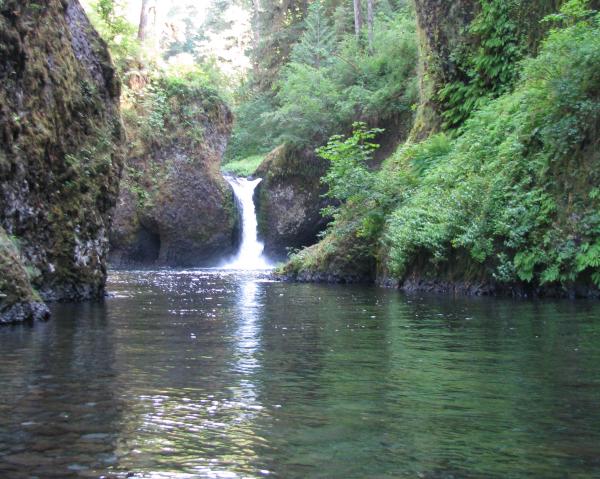
A short while ago, despite two hurricanes and a shooting in Las Vegas, advocacy journalists in North Carolina were spending time attempting to Gerrymander the word "conservationist" in order to make sure an expert in favor of natural gas could be excluded from a committee. Mostly because he lacked their key criterion, a donation to Sierra Club.
Yet they didn't come right out and say that. Their stated concerns were that Jim Womack, a member of our Board of Scientific Advisors, was filling a slot reserved for a "nongovernmental conservation interest" on the state's Oil and Gas Commission. This passes for controversy in political environmentalism. Womack, a West Point graduate, retired after a long career as an Army Officer, where he had served in the Pentagon and testified before Congress. He then worked, among other things, in the Washington and North Carolina Departments of Health & Human Services before serving as chair of the North Carolina Mining & Energy Commission from 2012-2014. All those things got him nominated to our advisory board, which peer-reviews our technical papers and signs off on formal policy initiatives. Maybe things are different now but when I was an Army officer, you couldn't major in sociology at West Point, so he is a pro-science guy, with a degree in engineering.
I'm a pro-science person too. I also consider myself a conservationist, even though I am not sending out fundraising letters looking to ban everything. I donate money to groups legitimately helping the environment (so not Sierra Club, NRDC, Greenpeace, etc. but instead groups that actually put boots on the ground doing positive things). I am certain the people running groups I donate money to would not dismiss my contributions to conservation as cavalierly as partisan journalists seek to do.
I asked in my staff meeting if others here considered themselves conservationists even though we educate people about science instead of planting trees. Here are a few responses.
Dr. Jamie Wells: "It's very binary on their part. You're either part of Greenpeace or not a conservationist. I haven't gotten a plastic bag in forever but I don't give money to Greenpeace. Does that mean I don't care about the environment?"
Dr. Alex Berezow: "I'm an environmentalist but I don't live in a tree and smell bad. I think progress solves problems. We had a huge pollution problem with horses and cars solved that. Now progress has reduced pollution from those too."
Thom Golab: "I was raised to plant a tree every year and I still do it, but their version of conservation a century ago would have meant sitting in the dark so we don't run out of whale oil. Real conservation meant saving whales by switching to kerosene and then electricity and now using electricity from natural gas and nuclear."
Dr. Julianna LeMieux summed it up nicely: "They can't see it because they're motivated by fear. What we're motivated by might be different for each of us, but I know it's not fear."
Fear indeed. Apparently of progress. The journalists quote-mining our site to claim that a pro-science consumer advocacy group couldn't care about conservation were really dog whistling for those who want to retreat into the past. To wit, Travis Fain at the local News-Observer, who worried about
positive comments about the group's work from a number of conservative icons, including former President George W. Bush.
"By increasing our understanding of complex issues, you help Americans make sound decisions about their well-being and influence public policy," Bush is quoted as saying.
Well, yes he did, the letter from him hangs on my wall. To activists, helping Americans make evidence-based decisions is a bad thing? Should we instead make decisions based on whatever chemical Eric Lipton is moaning about in the New York Times this week, or whatever miracle supplement Dr. Oz is hawking?
I never met Julia Child, so I had no way to know she was a "conservative icon" until he wrote that. I hope liberals will continue to remember her show fondly regardless.
There is a tiny town in Pennsylvania where I go hunting with my family each year, as I have done since I was 12 years old and seven generations of Campbells did before me. I saw wells going in a decade ago, back into the state where oil first became viable, and they weren't pretty, but energy, like sausage, is not something you necessarily want to see being made...unless it's how you feed your family. Yet I had zero concerns about the impact on the environment because the state has conservation biologists who monitor these things right along with my hunting and fishing. Are they not real conservation biologists because hunting licenses pay their salaries? Will they just forget ecology and let hunters shoot as many as we can eat until they're gone? Can a gas company just turn my ancestral home into a moonscape because they pay taxes? Of course not. Yet to detached political journalists and bloggers such simplistic 'me good, you evil' framing comes easily.
I know that actual conservationists, not the faux NRDC or Sierra Club kind, want to make their umbrella bigger. They want more people involved in nature, not less, and more donating money and proudly calling themselves conservationists. They do not want journalists on an ideological mission creating a false dichotomy, where you are either a scientist or a conservationist.
I wrote my conservationist story in an email to a journalist who asked but it's too long for an article so I won't repeat it here. If you have one, though, please share it in a comment.



